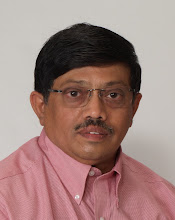"Three Presidents and an Aide" by Arshad Sami Khan
Salman Rushdie called Pakistan an “incomplete imagination” at its birth. Religious affinity brought the nation together. Differing cultural, linguistic, ethnic, geographic and political affinities are tearing it apart. Arshad Sami Khan, in his book, provides a ringside view of how this challenge was handled by three Heads of State (Ayub Khan, Yahya Khan and Zulfikar Ali Bhutto) for whom Sami was the aide de camp. Sami is a decorated war hero (fighter pilot in air force) and later a diplomat.
Sami steers clear of the typical pitfalls of memoirs of bystanders to history. Sami keeps the focus on the three heads of state; their personalities; and their roles in the events that unfolded during their reign. Ayub is portrayed as a “gentleman officer” with tolerance for the aspirations of his family. Believable. Bhutto is portrayed as an intelligent and cunning politician who could get haughty at times. Fits. Yahya is portrayed as a “straight talking army guy” with a teenager’s open mindedness and adventurism; and all rumors about “the fiddle playing Nero when Rome was burning” are dismissed as false. Not easy to believe.
According to Sami, in 1962, Ayub wanted to open a quick surgical war front (to cut off Kashmir from rest of India and walk away with the contested land) when the Indian army was deeply engaged with China. According to Ayub, US and UK prevailed on Pakistan to not do this promising to resolve the Kashmir dispute in favor of Pakistan in near future. Ayub regretted ceding to this pressure. In 1965, US embassy and State department assured Ayub that if Pakistan invades Kashmir, India would fight in Kashmir theatre alone and not open multiple fronts; and US would provide diplomatic support in international forums for Pakistan’s military operations in Kashmir. Ostensibly this was the reason Ayub deployed most of his firepower in Kashmir while the X division (defending Lahore) was hosting a football tournament. However India “declared an all out war”; opened multiple fronts; reached the gates of Lahore and its officers were promising to BBC that they would “drink double pegs in Lahore Gymkhana by midnight”. Sami says Ayub felt betrayed by the US Ambassador, who was promptly withdrawn from Pakistan. Some strategic thinker, this Ayub!
Yahya Khan’s strategic mistakes were political. He was shocked when, in a free and fair elections (for which he deserves credit) the underprivileged majority Bengali Muslims voted Awami league into power. He instructed his Security Council advisor Major General Umar to ensure that the results are different in the provincial elections that were to follow so that Yahya can discredit Awami League’s victory and retain power with the West. Hearing the praise for free and fair elections, he revoked the instruction to influence polls and negotiated with Mujib-ur-Rehman for an unconstitutional power sharing. He should have taken better counsel: from his aide de camp who has a more profound view on making a nation. Religion alone, according to Sami, is not sufficient as a binding force to make a nation. Cultural, ethnic, geographic and political affinities are important. If the founding fathers of Pakistan had designed it as “a loose federation of constitutionally autonomous units” Bengali Muslims would not have separated from Pakistan. If Sami’s masters had ceded to the rightful demands of Bengalis instead of imprisoning Mujib-ur-Rahman for conspiracy, Pakistan would not have lost its eastern arm.
Sami narrates one story that sounds uncharacteristic. When Yahya threatened to walk out of an Islamic summit because the Saudi monarch wanted to invite India (as the country with a large population of Muslims; in fact more than that of Pakistan), King Hussein intervened to apologize confessing he and the Saudi monarch were “conned into” inviting India by the crafty Indian diplomat. King Hussein offered to declare the Indian diplomat persona non grata for “interfering and misguiding members of the Conference”. Sami thinks of this as an accomplishment. Could this be true? Is ummat al-mu'minin, the Diaspora of Believers in Islam worldwide, defined by politics and not by religion?

No comments:
Post a Comment